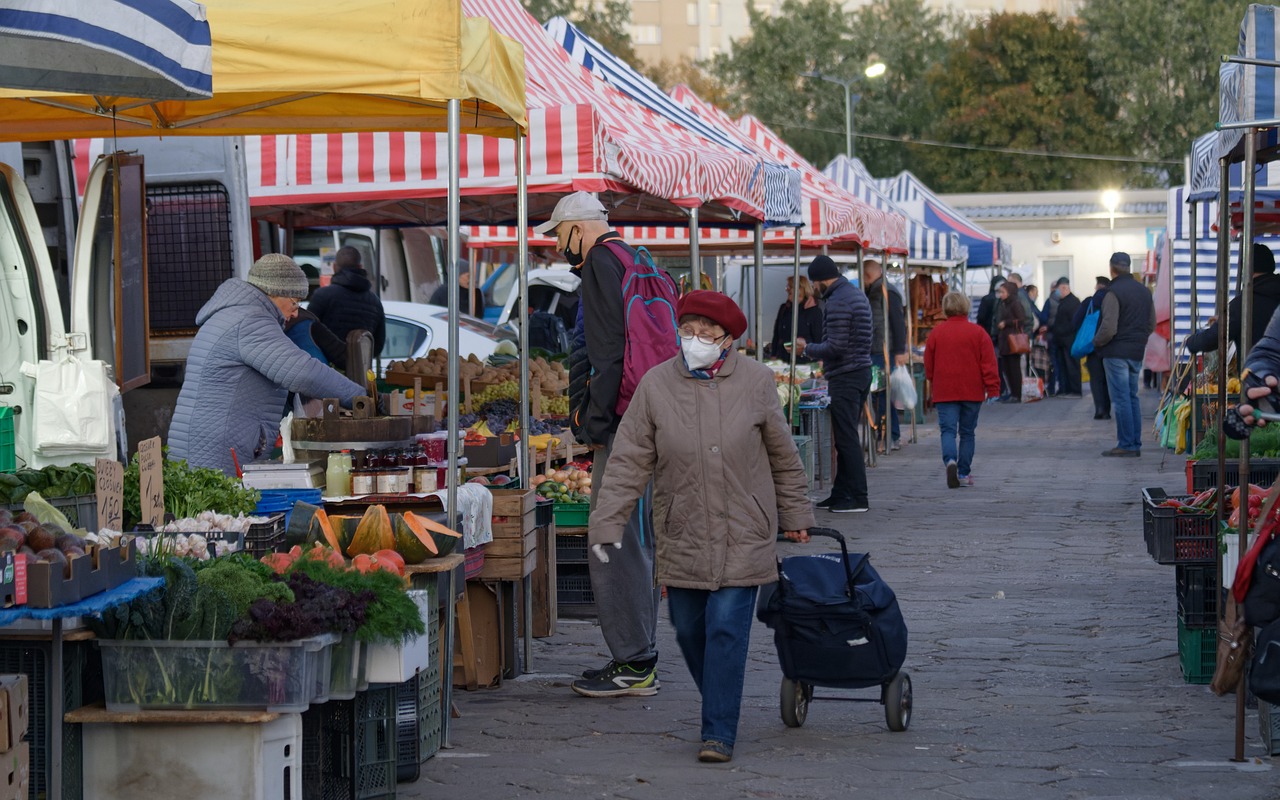
An agrifood market
Hyderabad: Agrifood systems must be part of the solution to the loss of biodiversity and the climate crisis facing our planet, the Director-General of the Food and Agriculture Organization of the United Nations (FAO), QU Dongyu, told a meeting of G20 Agriculture Ministers today.
“Despite progress, today we are facing alarming rates of biodiversity loss, jeopardising food security and nutrition, poverty eradication, prevention of natural disasters and climate change mitigation and adaptation,” Qu said in his address to a High-Level Ministerial Meeting on Sustaining Biodiversity and Ecosystem Services for Food Security, which took place in the Indian city of Hyderabad.
With as many as 828 million people worldwide facing hunger in 2021, and 3.1 billion unable to afford a healthy diet in 2020, “the urgency is clear” he said.
Indian Prime Minister Narendra Modi today urged the G20 Agriculture Ministers to deliberate on how to undertake collective action to achieve global food security.
Addressing the G20 Agriculture Ministers’ Meet via video message he suggested finding ways to build a sustainable and inclusive food system that focuses on marginal farmers and strengthens global fertilizer supply chains. At the same time, he asked for adopting agricultural practices for better soil health, crop health and yield.
Modi said that traditional practices from different parts of the world may help develop alternatives for regenerative agriculture. He emphasized the need to empower the farmers with innovation and digital technology and make solutions affordable for small and marginal farmers in the Global South. He also touched upon the urgent need to reduce agricultural and food waste, while investing in creating wealth from waste.
The Prime Minister noted that agriculture provides a livelihood for over 2.5 billion people globally and accounts for almost 30 per cent of GDP and over 60 per cent of jobs in the Global South. Underlining the challenges faced by the Global South today, the Prime Minister stated the impact of the pandemic and the worsening geopolitical tension disrupting the supply chain. He also touched upon climate change causing extreme weather events more and more frequently.
“India’s G20 priorities in agriculture focus on healing our ‘One Earth’, creating harmony within our ‘One Family’ and giving hope for a bright ‘One Future’”, he said.
The FAO Director-General emphasized that we need genetic diversity to adapt agrifood systems to climate change, emerging pests, pathogens and changing ecological conditions; we need species diversity for diverse foods; and we need healthy ecosystems to provide water, regulate the climate and provide resilience against disasters.
And yet, many drivers of biodiversity loss can be found in inappropriate agricultural practices.
“My message is clear: agrifood systems must be part of the solution to the biodiversity and climate crises,” Qu said.
This means promoting improved practices that can help address trade-offs, maintain ecosystems, improve land and soil quality, reduce input use, and strengthen the resilience and adaptation capacity of farming systems to extreme weather events linked to climate change, Qu said.
Working on solutions
The interlinkages between food security and biodiversity are recognized in the recently adopted Kunming-Montreal Global Biodiversity Framework, which sets out an ambitious pathway for a world living in harmony with nature. More than half of its 23 targets for 2030 are directly related to agrifood systems, which encompass the full food and non-food range of agricultural products, from production to consumption.
Agriculture Ministers attending the G20 were therefore encouraged by Qu to be actively engaged in ensuring that their biodiversity commitments “are holistically implemented, considering environmental degradation, social impacts and economic opportunities for the agricultural sectors.”
While attending the G20, the FAO Director-General also addressed its Plenary Session on Sustainable Agriculture for Food Security and Nutrition.
Here, Qu reminded his audience about the multiple challenges facing the efforts to feed a growing global population sustainably. These include conflicts and economic hardship; weather extremes, such as heavy rains, tropical storms, cyclones, flooding and drought; as well as rising food, fuel and fertilizer prices.
“To transform our agrifood systems to become more efficient, inclusive, resilient and sustainable, we need to accelerate and intensify actions and boost investments in agriculture,” Qu said.
FAO has developed two important strategies in this regard: the Strategy on Climate Change and the Science and Innovation Strategy.
“Their implementation should get us closer to the Zero Hunger goal,” Qu said.
FAO is also hosting the Food Systems Summit Hub and developing a roadmap to lower greenhouse gas emissions from agricultural activities to achieve the 1.5 degrees Celsius target set by the Paris Agreement while enabling the sector to step up to the challenge of eradicating hunger.
“Achieving Zero Hunger under 1.5 degrees will require significant investments, and FAO is working through its Hand-in-Hand Initiative to accelerate investments for the transformation of agrifood systems,” Qu said.
– global bihari bureau





